Secret theft of another's property constitutes unlawful treatment / seizure of property causing damage to its rightful owner. The punishment for this act is established by Article 158 of the Criminal Code. 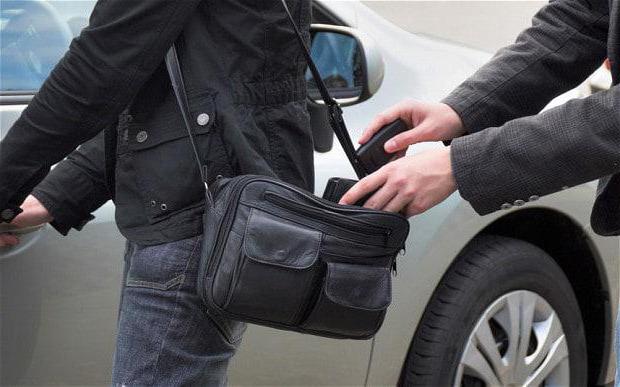
General composition: sanctions
The Criminal Code provides for the following punishment for theft without aggravating circumstances:
- Fine up to 80 thousand rubles.
- Mandatory (up to 360 hours) / correctional (up to a year) / forced (up to 2 years) work.
- Restriction / imprisonment up to 2 years.
- Arrest up to 4 months.
Aggravating circumstances
The second part of Article 158 of the Code establishes sanctions for committing theft:
- group of persons;
- with illegal entry into the room (storage);
- with causing significant harm to the citizen;
- from a bag (other hand luggage), the clothes of the victim.
For these acts are assigned:
- Up to 200 thousand p. a fine.
- Mandatory (up to 480 hours) / corrective (up to 2 years) / forced (up to 5 years) work.
- Imprisonment up to 5 years.
In addition to forced labor and imprisonment, restriction of liberty of up to one year may be added.
In 3 parts 158 of the norm of the Criminal Code is established punishment for theft:
- with illegal entry into a living room;
- from oil and gas pipelines;
- in large size.
The minimum fine is 100, the maximum is 500 thousand rubles, the duration of forced labor is 5 years, and imprisonment up to 6 years. In addition to the last two sentences, restriction of liberty up to 1.5 years may be additionally imputed. To the prison deadline for theft the court may also impose a fine of up to 80 thousand rubles.
For the theft committed on an especially large scale or by an organized group, imprisonment of up to 10 l shall be imposed. In addition, a fine (up to 1 million) and restriction of freedom up to 2 years may be imputed. 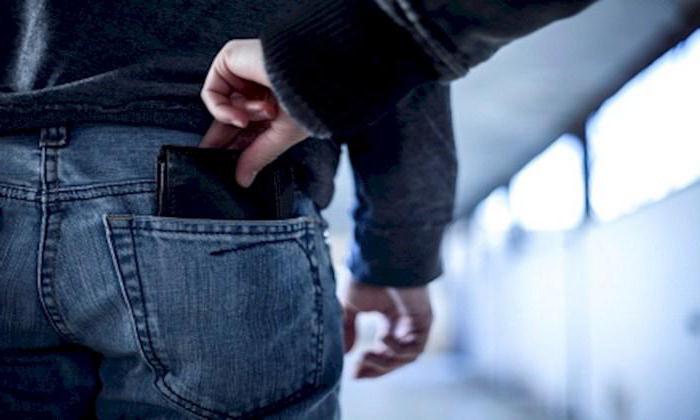
Terminology features
In accordance with Of the Criminal Code of the article "Theft" valuation concepts are used. The first of these is "significant damage." It is determined taking into account the property status of the victim, however, it cannot be less than 5 thousand rubles.
The next concept is "large size". The value of values in excess of 250 thousand rubles is recognized as it. A particularly large damage is estimated at 1 million rubles.
Under premise in article "Theft" in the Criminal Code you should understand the object intended for the temporary stay of people, placement of property for production and other official purposes. A storage facility is an utility room isolated from a residential building, a pipeline, and another structure used for temporary / permanent maintenance of valuables.
Comments
The concept of "theft" used in Art. 158 of the Criminal Code "Theft", is also mentioned in other Codex standards. For example, this term appears in articles that penalize:
- fraud (159);
- misappropriation / embezzlement (160);
- robbery (161);
- robbery (162), etc.
The main theft signs:
- selfish purpose;
- wrongfulness;
- gratuitousness;
- belonging of property to another person;
- the presence of damage.
Selfish purpose
Persons committing theft of another's propertyhave a variety of motives. Some are driven by envy, independence, the desire to show their courage. The motives of others - following someone’s example, solidarity with someone. In some cases theft of another's property committed to show their generosity to help someone.
The presence of a mercenary purpose indicates the intentional nature of the act. Meanwhile, selfish motives do not change the direction of the goal.After all, a person in any case commits an unlawful act, receives illegal enrichment, or unlawfully satisfies the need of another entity. 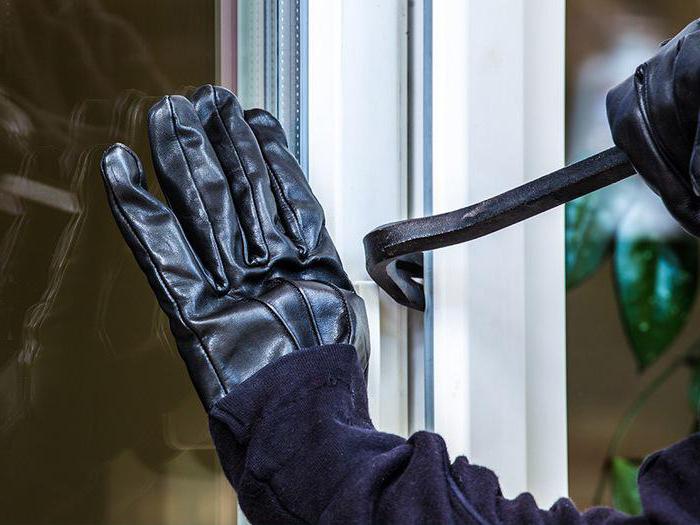
Wrongfulness
It is inherent in all acts for which the punishment sets Criminal Code of the Russian Federation. Theft - an action aimed at the appropriation of values belonging to other persons. The culprit does not have rights to the stolen property. Wrongfulness - a sign delimiting in Criminal Code of theft from arbitrariness.
Gratuitousness
It assumes that the property appealed in favor of the guilty party (a third party) or seized is not paid or is partially paid or nothing equivalent is provided in return.
Gratuitousness allows you to delimit theft of another's property from an exemption involving compensation for the value of values. Compensation of property in favor of the guilty takes place with arbitrariness and abuse of authority.
Features of the act
Theft of another's property may be expressed in the unlawful removal of values from the actual possession of a person. It is always aimed at the circulation of property in favor of the guilty party or other entities. This symptom is key to theft. Its presence allows you to delimit the act from the unlawful seizure of the vehicle without the purpose of theft, intentional damage / destruction of values.
Damage
It should be understood as real material damage that arose from the legal owner of the stolen property. When assessing damage from judicial theft lost profits are not taken into account.
The value of the values is determined depending on the conditions of their acquisition by the owner based on the price that existed at the time the act was committed. If it is impossible to establish it, an examination is carried out.
An object
Committing theft, the offender encroaches on relations related to property (private, municipal, state, public). These relationships include the use, disposal, ownership of values. According to the Constitution, in the Russian Federation, all forms of ownership, as well as the interests of any bona fide owners, are protected by law. 
Theft
It can be any property, movable or immovable. The latter, in accordance with Article 130 of the Civil Code, includes, among other things, land, subsoil, and everything that has a strong connection with the land, that is, objects whose movement without damage to their purpose is impossible.
As for the subject of theft, it can only be movable things.
Qualification Features
If the subject of an infringement is a weapon, explosives, ammunition, explosive devices, an act are qualified under article 226. When determining the subject, it is necessary to be guided by the provisions of the Law "On Weapons".
If the perpetrator committed the theft of psychotropic / narcotic substances, then the assault is qualified according to the 229th standard of the Criminal Code.
You can be held accountable citizen from 14 years old.
Nuances
In article 158, theft is called the secret theft of valuables. This means that the seizure of property occurred:
- in the absence of the rightful owner or unauthorized persons;
- in the presence of the owner or other citizens, but invisibly to them;
- in the presence of the owner or by unauthorized persons, if it is noticeable, but the perpetrator believed that he was acting secretly.
If the subject began unlawful actions, and they were noticed by other citizens, but the perpetrator continued them, his behavior is qualified as robbery. If these actions were accompanied by life-threatening violence or the threat of its use, they are recognized as robbery. Corresponding explanations are present in paragraph 5 of the resolution of the Plenum of the Armed Forces No. 29.
Actions that the perpetrator commits after the theft in order to avoid detention or to hide are not considered robbery or robbery. They must be qualified according to the relevant criminal law, depending on their nature and consequences.
Gang crime
The theft should be recognized as a perfect group of persons if two or more citizens who previously agreed on joint unlawful actions took part in it. 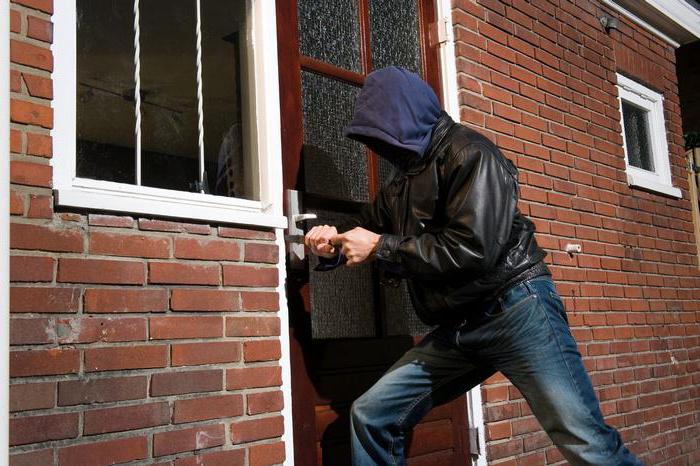
If one subject is recognized as an executor, the second as an accomplice, organizer or instigator, their actions do not fall under Part 2 of Article 158 of the Criminal Code. Similarly, one should consider cases of a person joining the theft that had begun, with subsequent agreement on the joint commission of a crime.
If in the group of persons who previously agreed on the theft, one of the subjects has committed robbery or has applied (threatened to apply) violent actions against the victim, his actions are qualified as robbery or robbery. The behavior of other perpetrators falls under Part 2 of Article 158 of the Criminal Code if their intent was not to commit open theft or if they did not directly contribute to violent acts or did not use them to seize the values of the victim of the crime.
Set of acts
If one citizen was found guilty of several thefts, and he was not convicted of any of them, this fact is not recognized as an aggravating circumstance. When revealing mitigating factors enshrined in clauses "and", "k" of Article 61 of the Code and the absence of other aggravating circumstances, the amount of the sanction, in accordance with Art. 62, must not exceed 3/4 of the deadline / amount of the most severe punishment established in the relevant norm of the Special Part.
If there is an unexpunged / outstanding conviction for theft in the past with respect to the person who committed the secret theft, the issue of the presence of a relapse in his actions should be decided. If it is present, the provisions of article 62 are not applicable, since there is an aggravating factor. In such situations, it is necessary to be guided by Part 2 of Art. 68, if mitigating circumstances, enshrined in 61 articles, are not identified. 
In this case, when recognizing a relapse, criminal records for theft are not taken into account:
- being conditional or imputed with a delay in the execution of the sentence, if they were not canceled, and the offender was not sent to places of imprisonment;
- canceled / withdrawn according to the rules enshrined in article 86;
- Provisions provided for by Part 1 of 158;
- committed by a minor.
Continued theft
It should be distinguished from repeated secret theft.
Repeated theft of values, consisting of several identical actions, if they are committed under circumstances indicating the presence of a single intent and common goal to secretly steal a certain amount of values, is considered continued.
Illegal entry
It is understood as an open / secret intrusion of an attacker into a room / storage for committing illegal actions. Penetration can be carried out with overcoming the resistance of people or obstacles or without it.
In case of theft, the perpetrator can use devices with which he retrieves the stolen property without directly entering the premises. However, such actions are considered penetration. Meanwhile, secret theft of property, for example, from a window sill with an open window, does not qualify as theft, if at the same time no devices were used, and there was no direct intrusion into the room.
If a citizen entered the premises without the intention to commit theft, but subsequently committed it, his actions also do not fall under Article 158 of the Criminal Code.
The key sign of penetration under Art. 158 is its illegality. That is, the perpetrator should not have the right to enter the premises without the knowledge (permission) of the owner or any other bona fide owner of the object.
If the theft with penetration into the premises has grown into open theft, the actions of the perpetrator are qualified as robbery / robbery with penetration into the housing.
Significant damage
When determining its features, it is necessary to take into account not only the value of the stolen property, but also other significant circumstances. In particular, the material situation of the victim, the significance of the lost thing should be taken into account.
Significant damage should be at least 2.5 thousand rubles.
Clarifying Signs
They are given in paragraph "b" of part 3 of article 158. The provisions contain an indication of the specific place of theft: oil, gas pipeline or oil product pipeline. 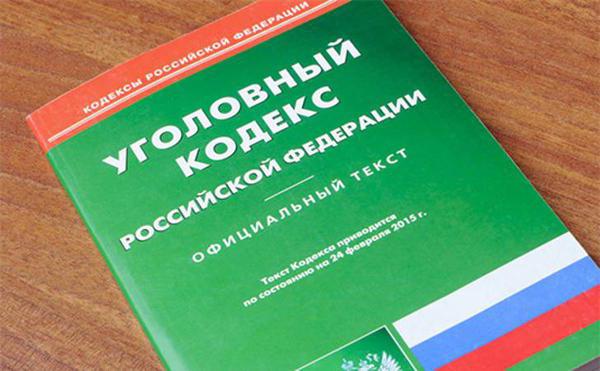
Typically, such theft is committed through unauthorized tapping into the trunk for further unlawful seizure of raw materials. Typically, an organized group or community is involved in a crime.
The act provided for in paragraph 1 of article 158 is considered to be a small assault, in part 2 - of medium gravity, part 3, 4 - serious.